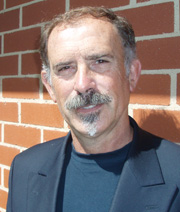 The rise of the Age of Information and ‘new media’ requires the same application of ethical principles as applied to ‘old media’, according to a Charles Sturt University (CSU) lecturer, researcher and lead author of a new book, Media, Markets and Morals.
The rise of the Age of Information and ‘new media’ requires the same application of ethical principles as applied to ‘old media’, according to a Charles Sturt University (CSU) lecturer, researcher and lead author of a new book, Media, Markets and Morals.Dr Edward Spence, a senior lecturer in media ethics at the CSU School of Communication and Creative Industries in Bathurst and senior research fellow at the ARC Research Centre for Applied Philosophy and Public Ethics (CAPPE) in Canberra , said the rapid evolution of technology and the rise of large powerful media organisations has produced a challenging ‘role morality’ that applies to the media industry and the people who work in it.
“Role morality is derived from the function (role) of institutions (for example, politics, education, military, policing, religion), and the dynamic social conditions within which they operate,” Dr Spence said.
“The role morality of the media is determined by its primary function of providing information to its audience, the public. The book identifies the provision of information to the public as the essential function of the media. The very concept of information requires that its communication must be truthful, accurate, reliable and trustworthy, which in turn implies certain unavoidable ethical responsibilities and commitments on the part of those who produce and disseminate it.
“Those ethical commitments and responsibilities apply equally to both ‘new media’ and ‘old media’ as their respective role moralities are essentially and fundamentally the same – the dissemination of information to the public. Given that the dissemination of information in the Information Age is now a global phenomenon, those ethical commitments are not only local but also global.
“How the media does provides information is shaped by changing information and communication technology and by powerful multi-billion dollar commercial media enterprises but is constrained by the ethics of information dissemination.
“Our book, Media, Markets and Morals, examines how to apply the role morality of the media to general and specific morally-problematic practices, and how best to promote ethical behaviour within the media, both online and offline.
“We need investigative journalism now more than ever,” Dr Spence said. “And we need a global ethics model based on the ethics of information that applies to both new media and old media, with principles such as the right to privacy and the public’s right to be informed on matters of public interest, in all their various manifestations and applications. This is what the book provides.”





Social
Explore the world of social